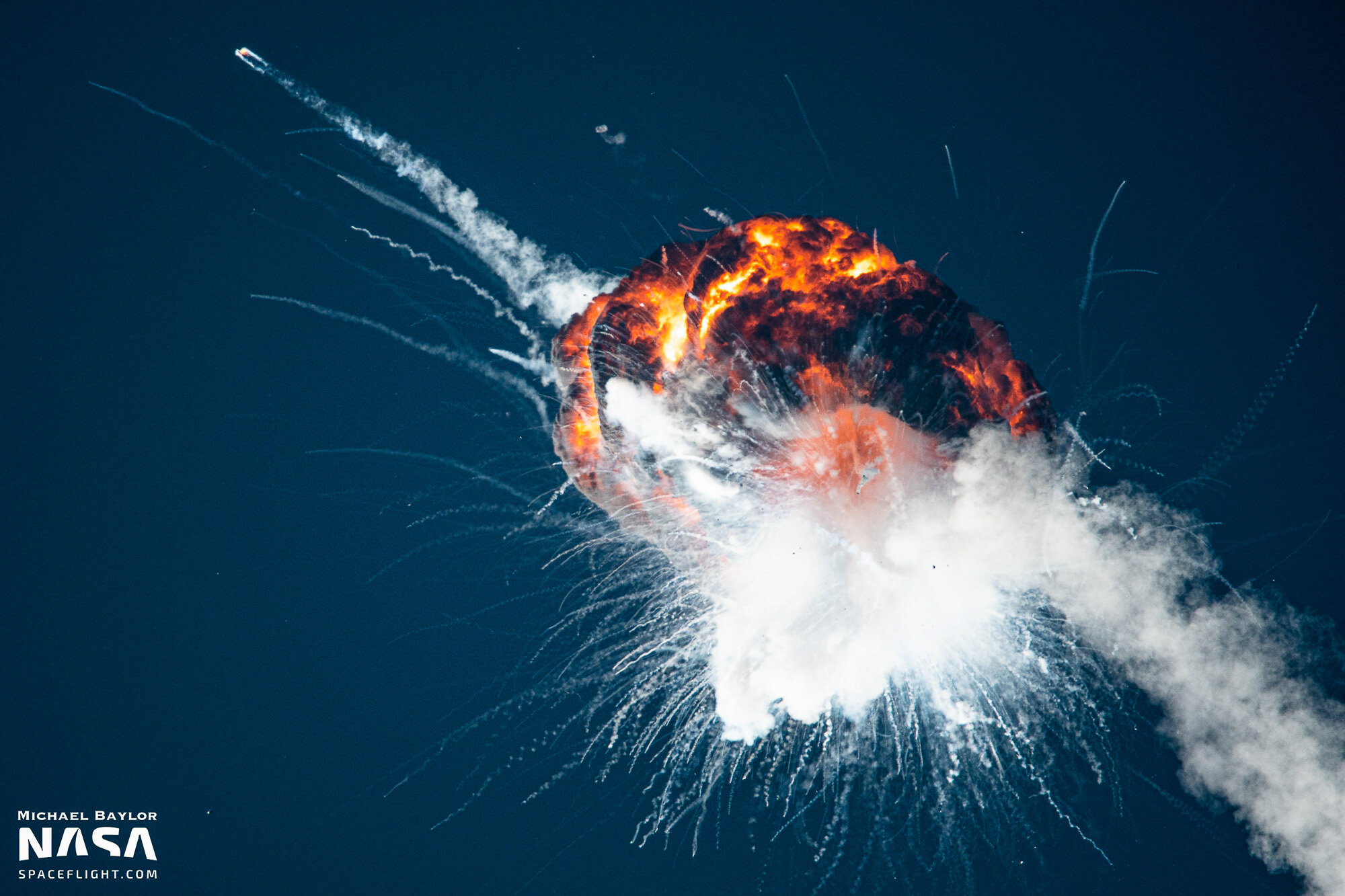It was supposed to be the first rocket created by a private, Ukrainian-owned company to make it to orbit.
Firefly Aerospace’s employees were agog with excitement when the company’s Alpha rocket lifted off from Vandenberg Space Force Base in California at 4:50 a.m. on Sept. 3. But two and a half minutes into its flight, the rocket began to tumble before exploding spectacularly over the Pacific Ocean.
“Alpha experienced an anomaly during first stage ascent that resulted in the loss of the vehicle. As we gather more information, additional details will be provided,” the U.S.-based company, co-owned by Ukraine-born entrepreneur Max Polyakov, said in a tweet.
The U.S. Space Forces released a statement that the launch had been “terminated.” There were no injuries as a result of the failure but the company lost the rocket and 92 kilograms of cargo, including a space junk collector and a satellite.
The mission ran into problems even before liftoff. Firefly aborted the rocket’s first launch attempt at 4 a.m. during the final seconds of countdown for unspecified technical reasons.
For space enthusiasts, the failure didn’t come as a surprise. Getting to space is hard, especially for a young startup like Firefly. It took Elon Musk’s SpaceX nearly three years and four attempts to successfully launch its Falcon 1 rocket in 2008. Now SpaceX, valued at $74 billion, makes hundreds of launches per year.

The photo shows the 29 meters-tall Alpha rocket, owned by the U.S. space company Firefly Aerospace, before its launch to orbit from a spaceport in Vandenberg, California on Sept. 3, 2021. Within two and a half minutes after liftoff, the rocket exploded in the sky above the Pacific Ocean. (Courtesy of Firefly Aerospace)
Polyakov’s Firefly, valued at $1 billion, is staying positive about the test flight. After all, Alpha successfully ignited its first stage and managed to get off the ground, which is no small achievement. The company recorded a great deal of flight data it could apply to future missions.
This launch is also a big milestone for Ukraine. Polyakov is the first Ukrainian who built and delivered a new rocket to the launch pad in independent Ukraine’s 30-year history.
Although his company is based in Texas and its executive board consists entirely of Americans to make government contracts easier, it works closely with Ukraine. Firefly has a research and development center in Dnipro, a city of about one million people 480 kilometers southeast of Kyiv, employing 59 of the company’s 475 specialists.
Polyakov also works with Ukraine’s giant spaceship factory Pivdenmash in Dnipro. Last year, Firefly signed a $15 million contract with a factory to develop rocket parts. Pivdenmash was a legendary enterprise in the 20th century that is now slowly dying due to a lack of contracts.
“I am the last hope of bringing the Soviet intellectual property to the U.S., where it can do good,” Polyakov said in an interview with Bloomberg.

The U.S. space company Firefly Aerospace, co-owned by Ukrainian entrepreneur Max Polyakov, develops small and medium-sized rockets and satellites for commercial launches into orbit. In May, 2021, the company’s valuation exceeded $1 billion. (Courtesy of Firefly Aerospace)
Experts predict a bright future for Polyakov. Firefly’s Alpha rocket is designed to deliver up to 1,000 kilograms of cargo into orbit for nearly $15 million, which the company says is cheaper than the competition. Firefly is developing its second model, Beta, a two-stage launch vehicle that can deliver up to 8,000 kilograms of cargo into orbit for $35 million. The company promises that Beta will have the lowest cost of launch amid similar, medium-sized rockets.
Firefly’s market is rapidly growing, attracting a record $9.1 billion in 2020. The company, which has developed its own vehicles and secured contracts with big clients like NASA and SpaceX, has a head start on its younger competitors like Rocket Lab, Virgin Orbit, Astra and Relativity.
Polyakov’s firm Noosphere Ventures bought Firefly in 2017, reportedly for $75 million, and saved it from bankruptcy with investments of almost $200 million. Noosphere sold half of its stake in Firefly in May 2021 for $100 million and remains the space company’s biggest shareholder, with a 50% stake.
After raising $75 million from a group of investors in May, the company said that its valuation has exceeded $1 billion, making it another space firm with “unicorn” status, along with SpaceX, OneWeb, Virgin Galactic and Blue Origin. The company plans to raise an additional $300 million this year.

Although Firefly Aerospace is based in Texas, its owner, Max Polyakov, works closely with Ukraine. Firefly has a research and development center in Dnipro, employing 59 of the company’s 475 specialists. (Courtesy of Firefly Aerospace)
Polyakov wants to transform the space tech market with his rockets. Born in Zaporizhzhya, the city of 746,700 people 558 kilometers southeast of Kyiv, he became a successful tech entrepreneur and earned millions of dollars launching tech startups and selling them to international clients.
As of August 2021, Noosphere Ventures owns shares of nine space companies, including Firefly, as well as six companies in other industries like medicine and finance.
Going to space was Polyakov’s true dream since childhood when his parents, both working with space tech in Soviet Ukraine, could barely make ends meet. Polyakov couldn’t afford to study space engineering in the university, so he became a gynecologist. He didn’t work at the hospital a single day and finally made his way to space.
“Your passion can drive you forward wherever you were born,” he told Bloomberg. In three to five years, “we will be at the right time, at the right place, with a product that eats the market.”

Max Polyakov, founder of Firefly Aerospace, poses for a photo on Aug. 18, 2018. (Volodymyr Petrov)



